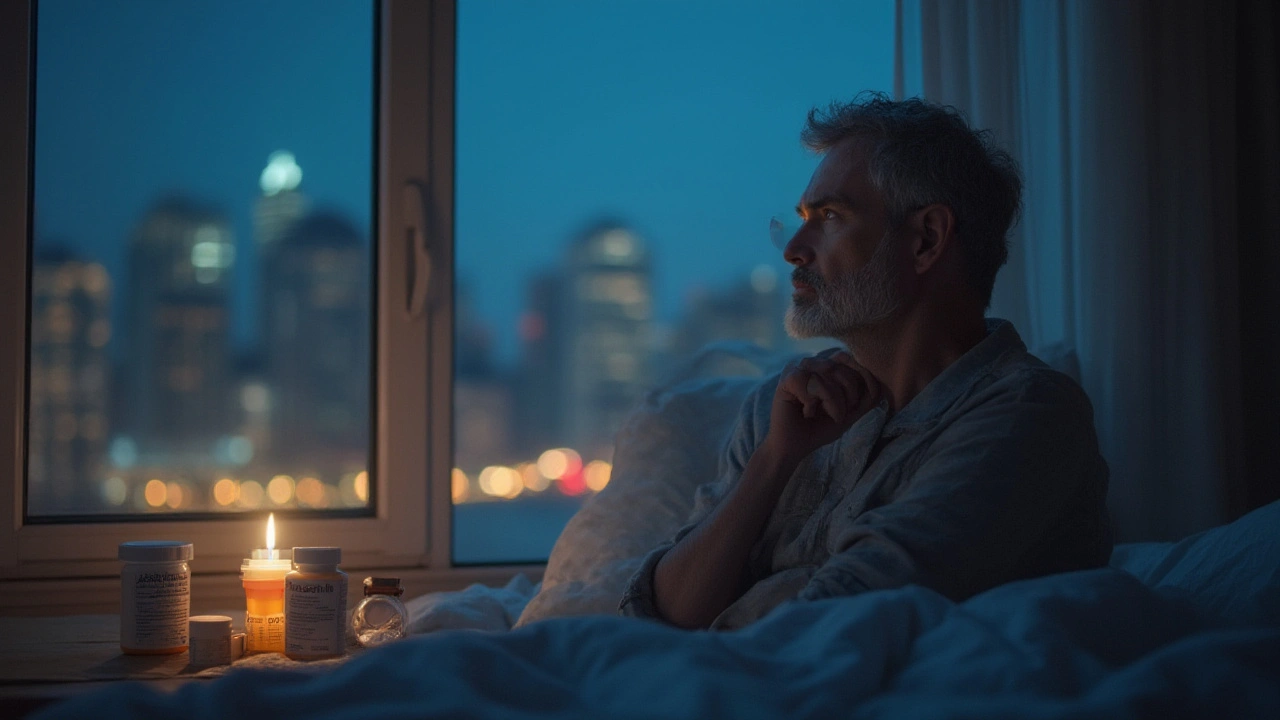Sleep Problems – What’s Going Wrong and How to Fix It
Do you lie awake scrolling, listening to the clock tick, or waking up feeling wiped out? You’re not alone. Millions deal with sleep problems every night, and most of them can be traced back to a few simple habits or health issues. Below you’ll find straight‑forward explanations of why sleep slips away and practical steps you can try right now.
Why Sleep Can Slip Away
First, think about your daily rhythm. Going to bed at wildly different times confuses your internal clock. When you binge‑watch shows late, your brain thinks it’s still daytime, and melatonin – the sleep hormone – doesn’t kick in.
Stress is a big culprit, too. Worries about work, money, or family can keep the brain in overdrive. Even if you’re physically tired, a racing mind stops you from drifting off.
Health conditions matter as well. Sleep apnea, where breathing stops briefly during the night, often leads to snoring and constant awakenings. Restless leg syndrome makes your legs feel itchy or twitchy, forcing you to get up.
Lastly, what you eat and drink matters. Caffeine after midday, heavy meals close to bedtime, and alcohol can all disturb the natural sleep cycle. These triggers are easy to spot once you pay attention.
Simple Steps to Get Better Rest
Start with a consistent bedtime. Pick a time you can stick to – even on weekends – and set a nightly alarm to remind yourself it’s wind‑down time. A regular routine tells your body, “It’s time to sleep.”
Turn off screens at least 30 minutes before bed. The blue light from phones and TVs tricks your brain into thinking it’s still daylight. Instead, read a paperback, stretch, or practice deep breathing.
Create a calm bedroom. Keep the room cool, dark, and quiet. A simple blackout curtain or a white‑noise app can block out distractions that pull you out of sleep.
Manage stress with a quick nightly ritual: write down three things that went well today and any worries you want to revisit tomorrow. Getting thoughts out of your head can calm the mind.
If you suspect a health issue like apnea or restless legs, talk to a doctor. Simple tests can confirm the problem, and treatments such as a CPAP machine or iron supplements often bring huge improvements.
Watch your intake. Avoid caffeine after 2 p.m., limit alcohol to one drink, and skip heavy meals within two hours of bedtime. A light snack with protein, like a handful of nuts, can keep you from waking hungry.
Finally, give yourself a chance to reset. If you can’t fall asleep after 20 minutes, get up and do a quiet activity in dim light. Staying in bed and tossing only reinforces the association of the bedroom with frustration.
Try these tips for a week and notice any changes. Better sleep isn’t a magic switch, but small tweaks add up quickly. You deserve a night of real rest – start with one change today and see how much better you feel tomorrow.
Does Atorvastatin Cause Insomnia? Science-Backed Insights on Cholesterol Drugs and Sleep
Does atorvastatin cause insomnia? Get the latest research, why it affects sleep, and tips for better rest while on cholesterol medication.
